Education discrimination in China
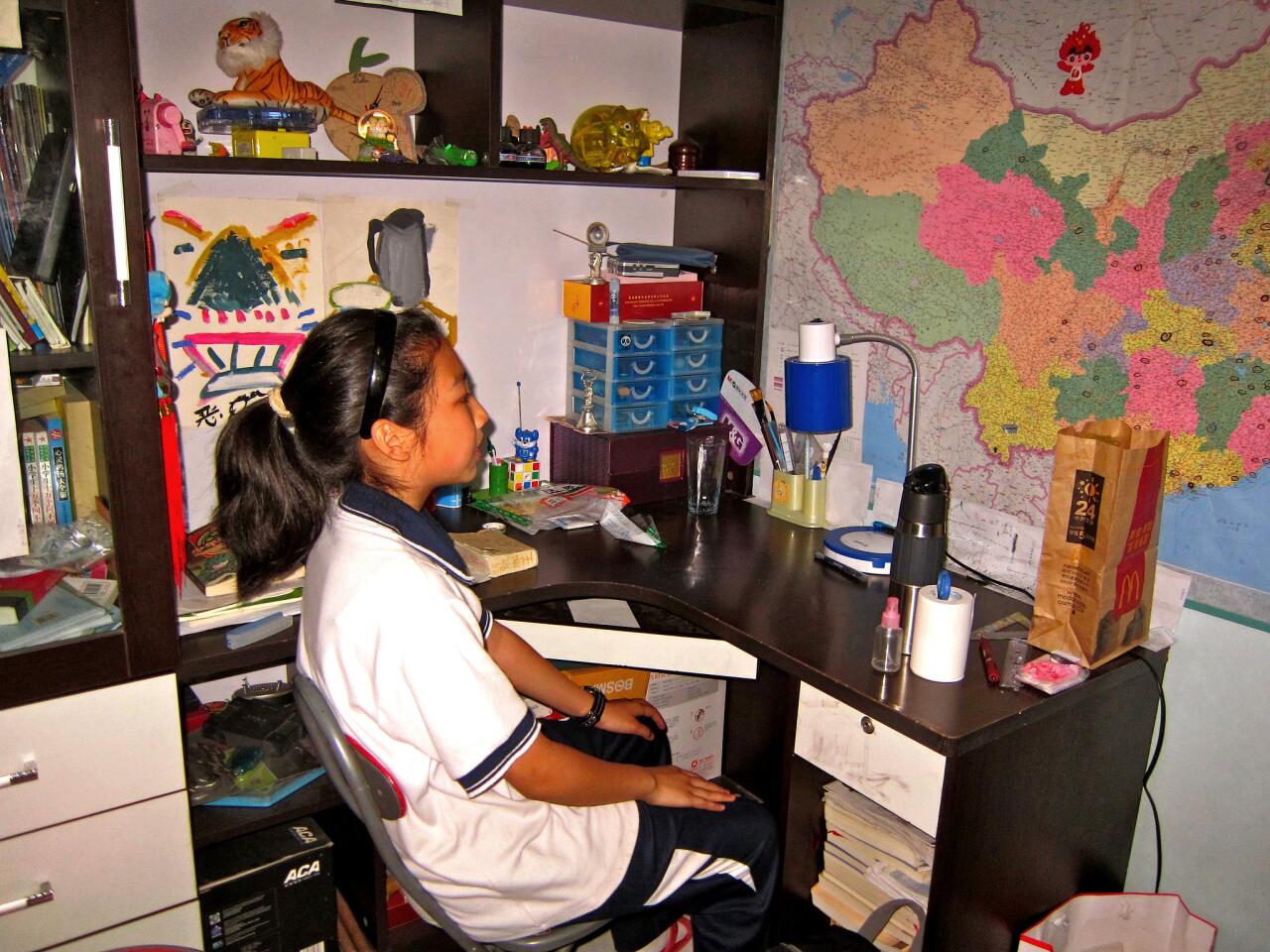
Wang Keyu, 13, has lived in the same apartment in Beijing her entire life. Her bedroom attests to the phases of her childhood, from the stuffed animals on the shelves to the kindergarten watercolors and, more recently, the stellar report cards, taped to the walls. But she will soon have to decide whether to move to Shandong province so she can attend college because her parents do not have residency permits for Beijing. (Barbara Demick / Los Angeles Times)
China’s convoluted laws stack the odds against university applicants who lack residency permits for Beijing or Shanghai.
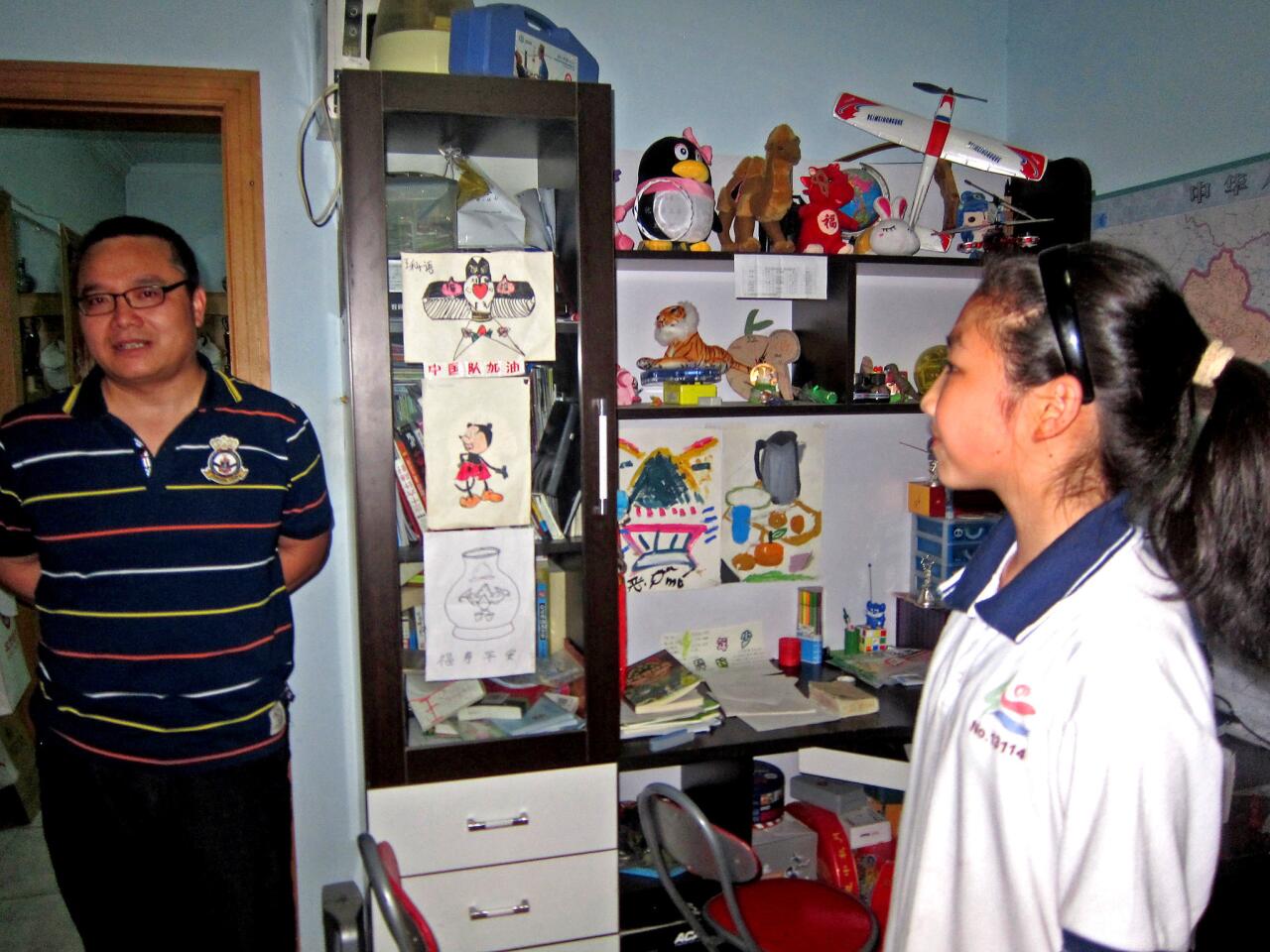
Wang Keyu, 13, with her father, Wang Xianli. Her parents have lived in Beijing for two decades and own their apartment there, but because their residency permits are for Shandong province, Keyu cannot take college entrance exams in the Chinese capital. (Barbara Demick / Los Angeles Times)
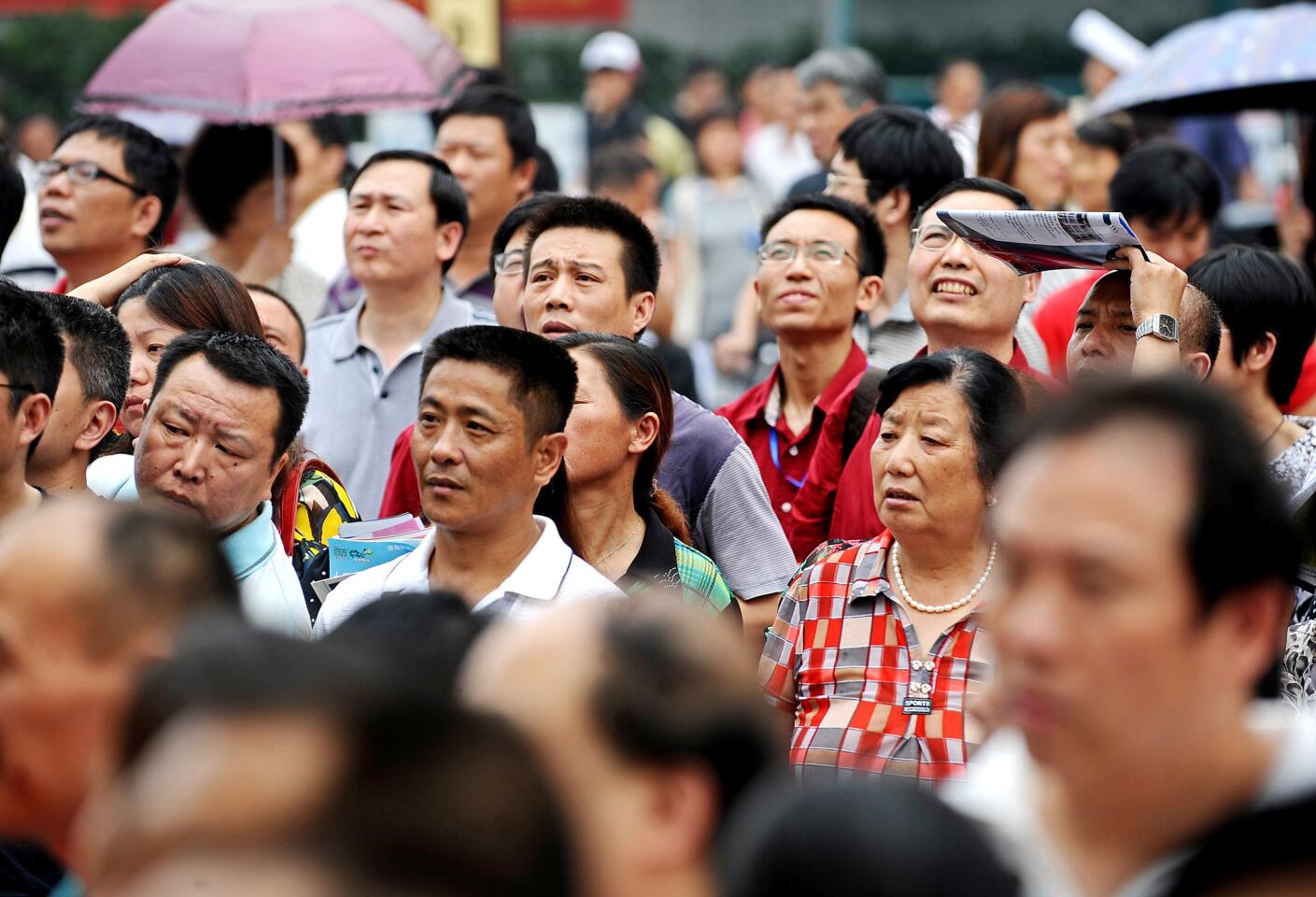
Parents wait in the city of Wuhan as their children take China’s tough college entrance exam, known as the gaokao. The exam is widely lauded as the guardian of China’s meritocracy and is believed to be relatively free of corruption. Yet the system is stacked against people from the provinces. (AFP/Getty Images)
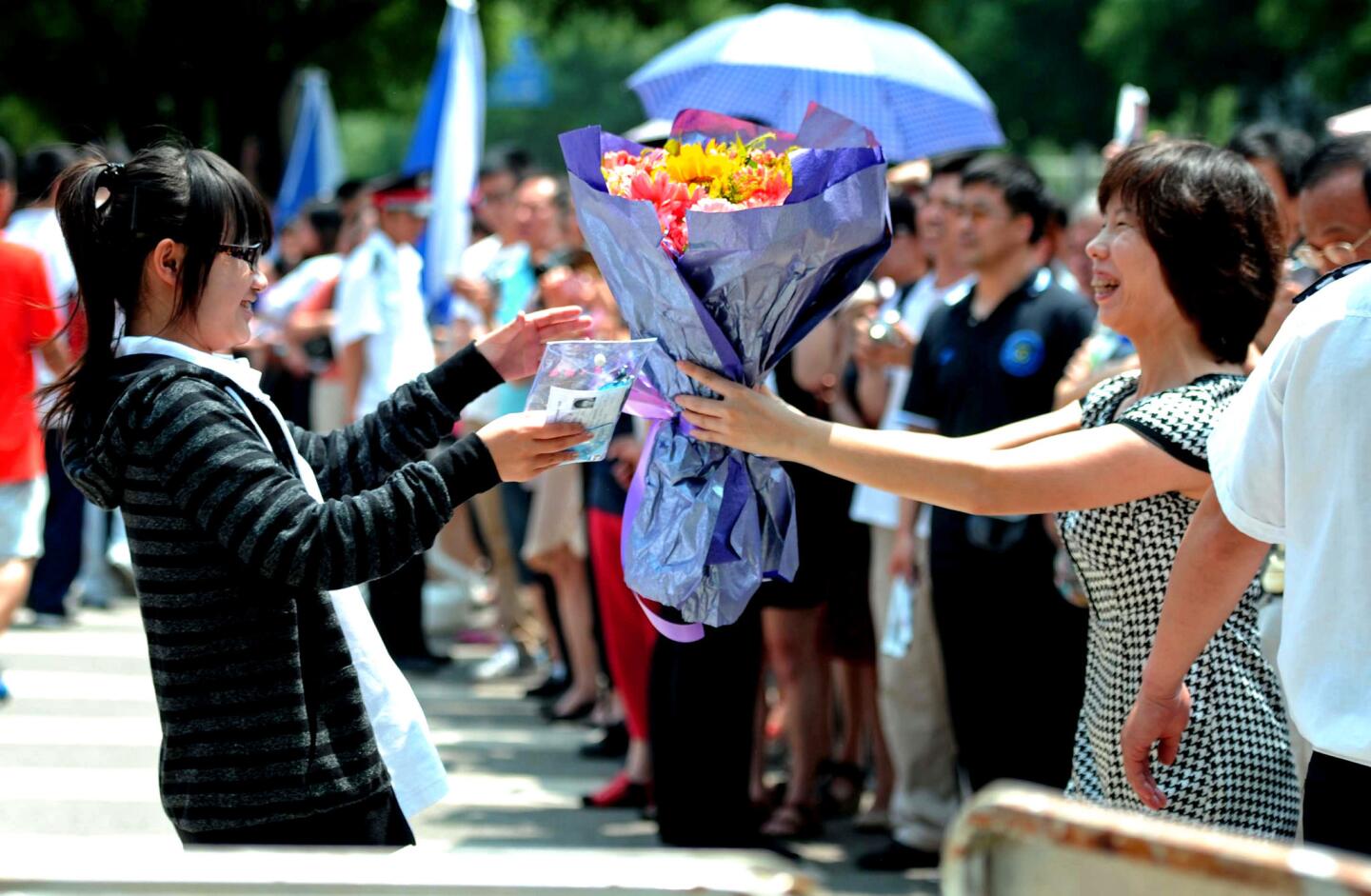
In Beijing, a woman greets her daughter, who finished the first day of China’s tough college entrance exam. Students who take the exam in Beijing must have residency permits for the Chinese capital. (AFP/Getty Images)
Advertisement
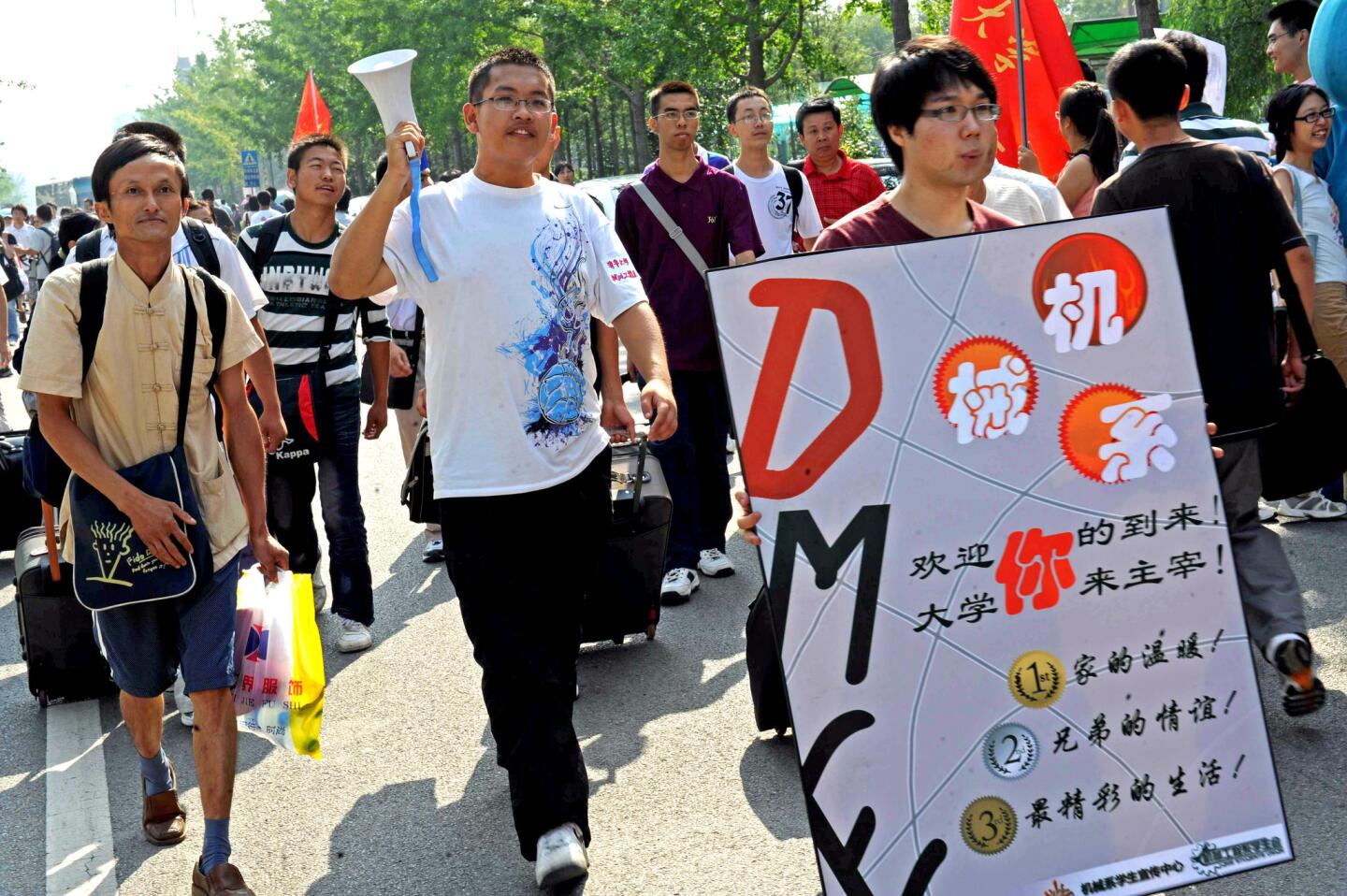
Students welcome freshmen to Beijing’s Tsinghua University before the start of a new semester. The university is among China’s elite institutions for higher learning. (AFP/Getty Images)
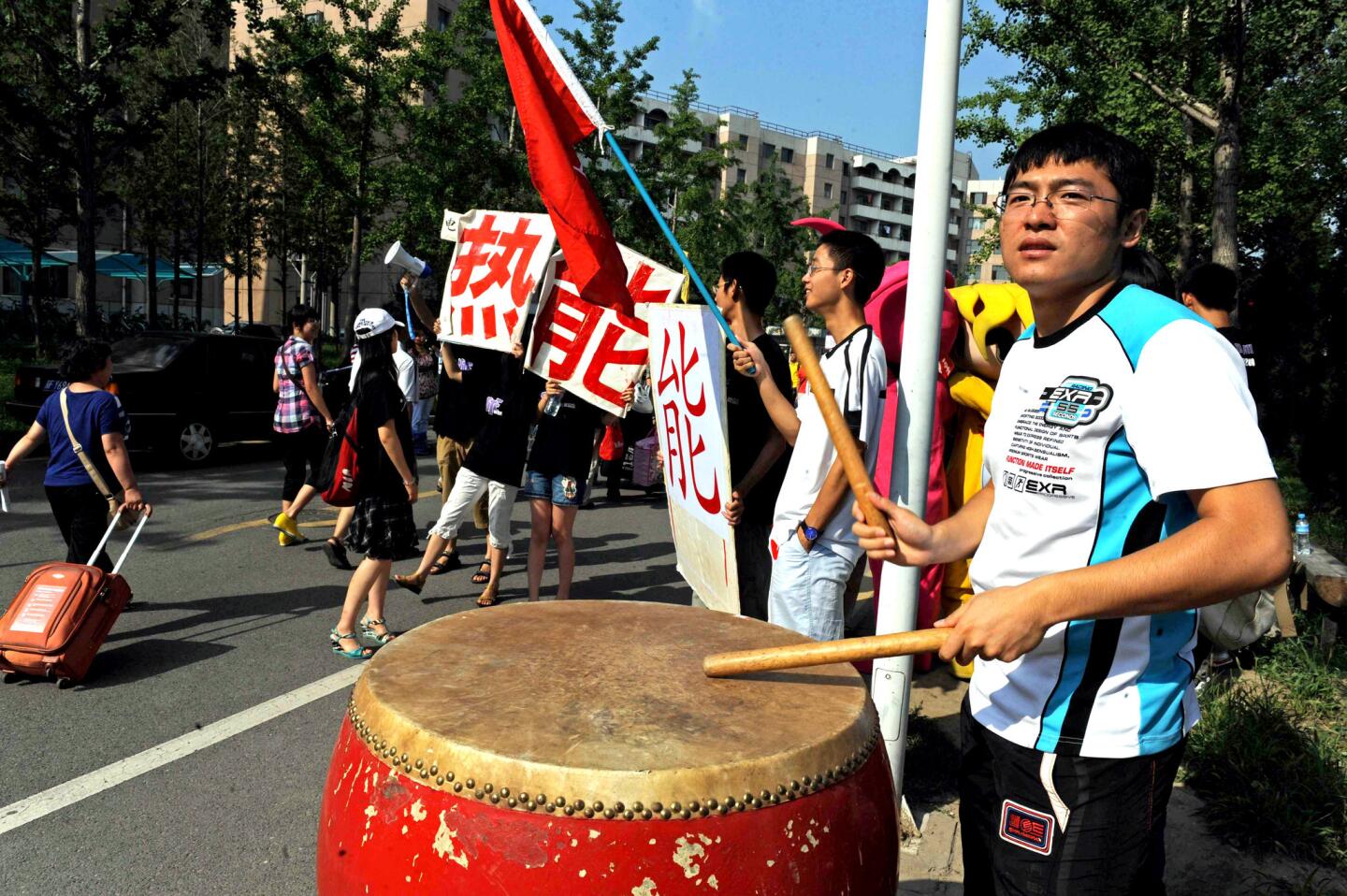
Tsinghua University freshmen receive a welcome from fellow students. In 2012, Peking and Tsinghua universities -- the Harvard and Yale of China, respectively -- allocated 661 spots for Beijing students, and 287 from Shandong, even though there were 7 1/2 times more test takers from Shandong. (AFP/Getty Images)
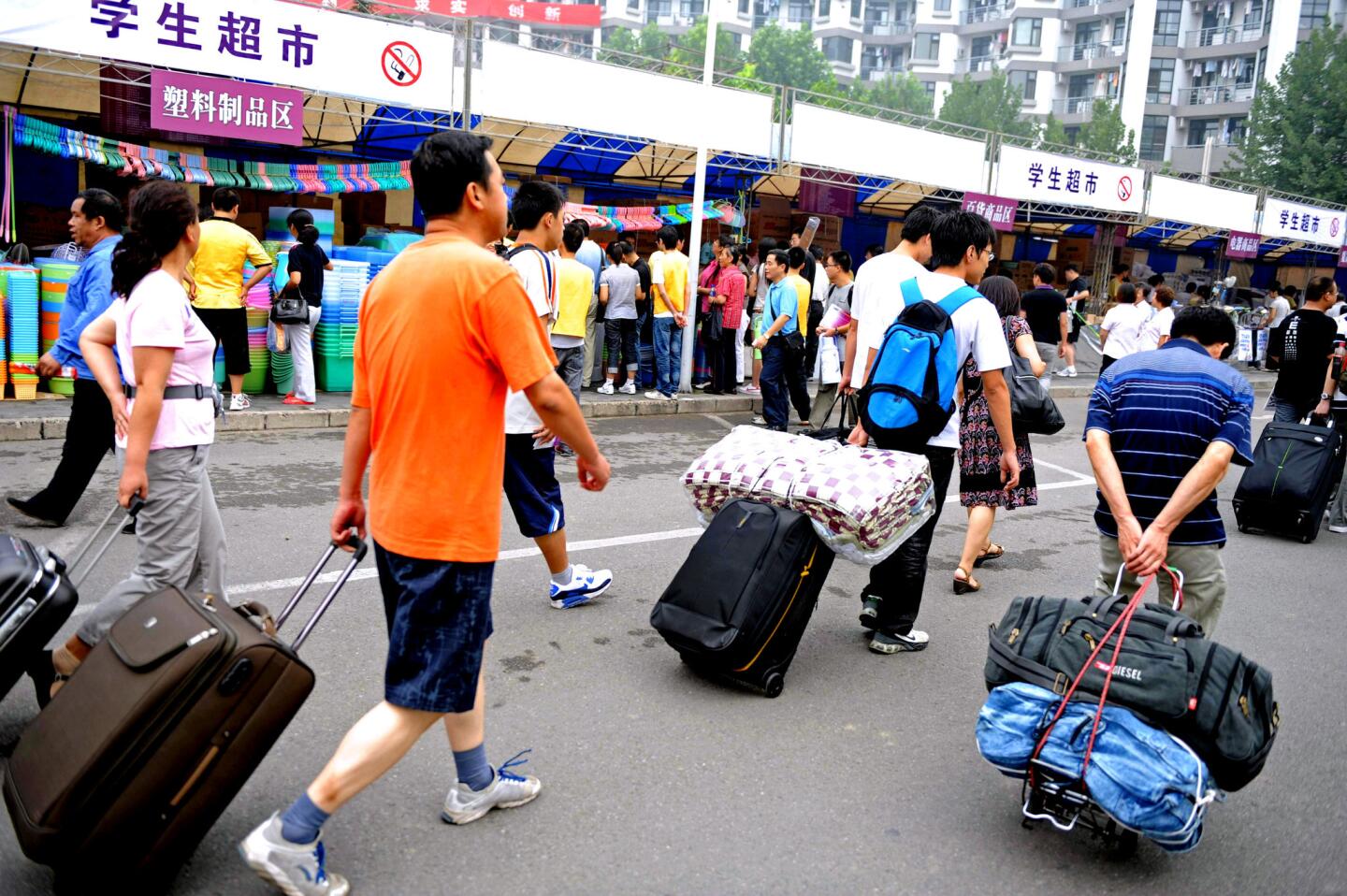
Accompanied by relatives, Chinese freshmen arrive at the prestigious Tsinghua University in Beijing. The Chinese capital has 26 fully accredited universities that give preferential admission to 14 million registered residents with Beijing hukous, or residency permits. (AFP/Getty Images)
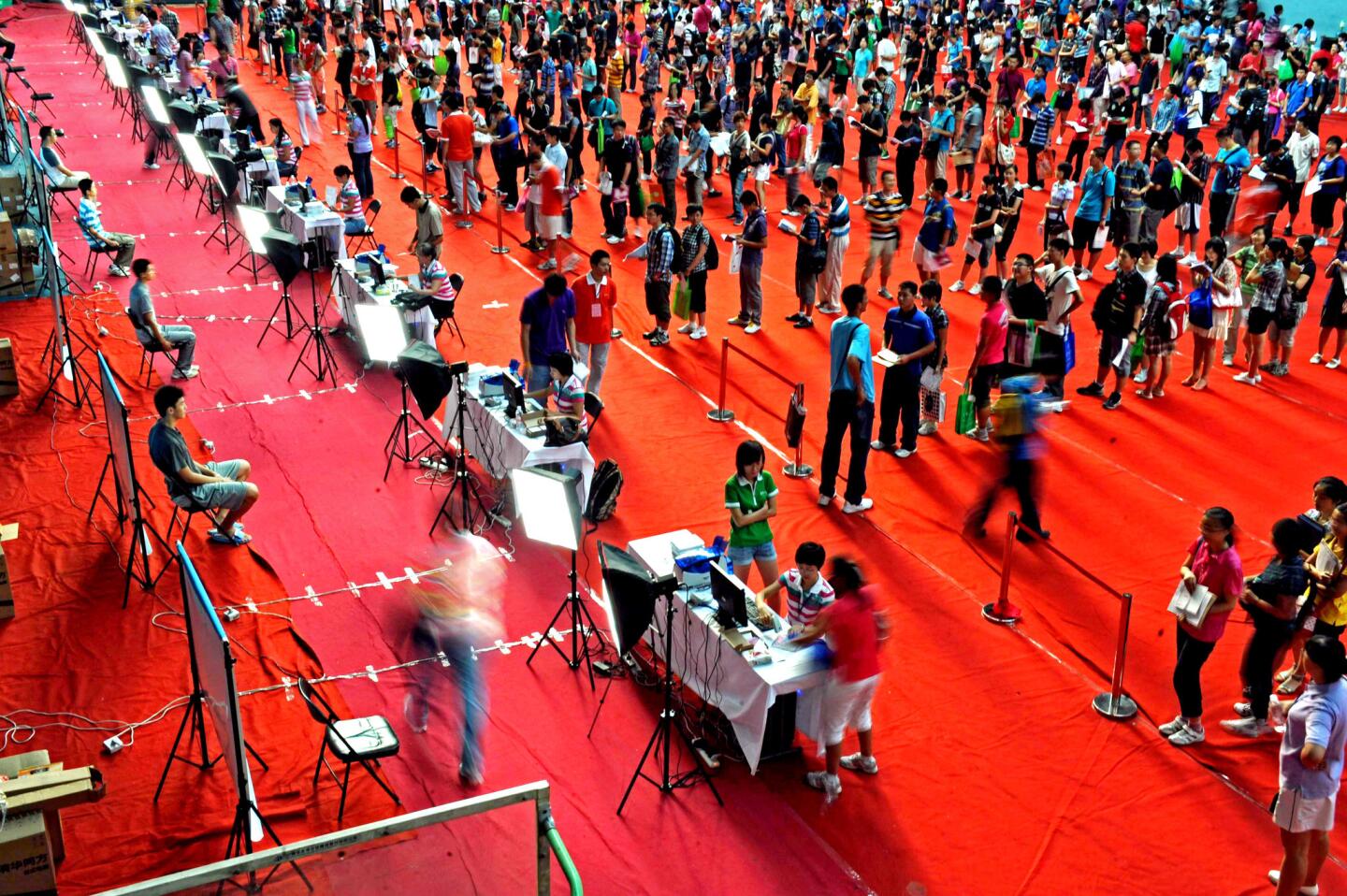
Freshmen students wait to register at Beijing’s Tsinghua University. Beijing and to a lesser extent Shanghai were designated as China’s intellectual centers, housing the top universities and the students deemed most deserving of higher education. (AFP/Getty Images)
Advertisement
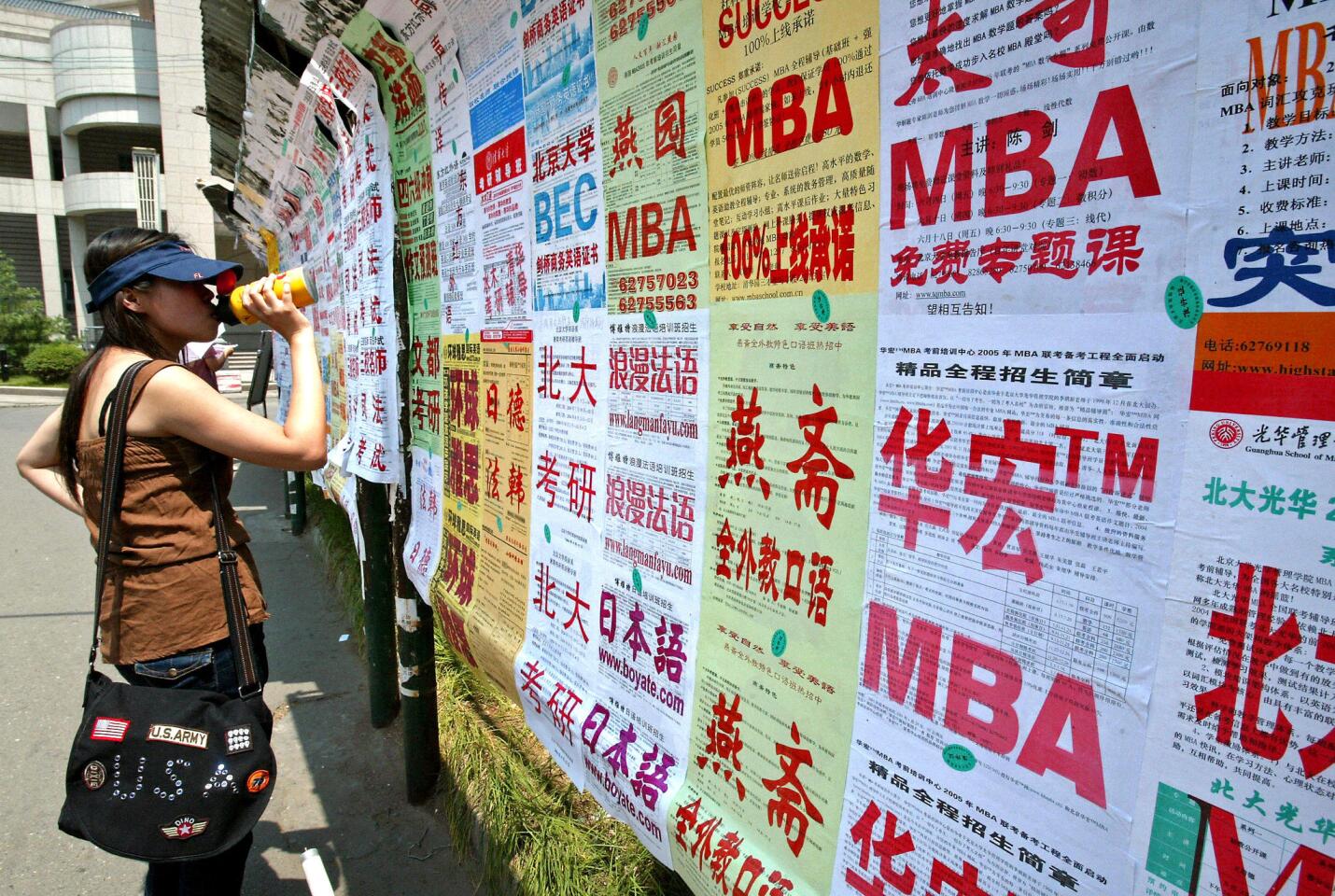
A student at Peking University stops to read ads promoting educational and career opportunities. The university is considered the Harvard of China. (Frederic J. Brown / AFP/Getty Images)







